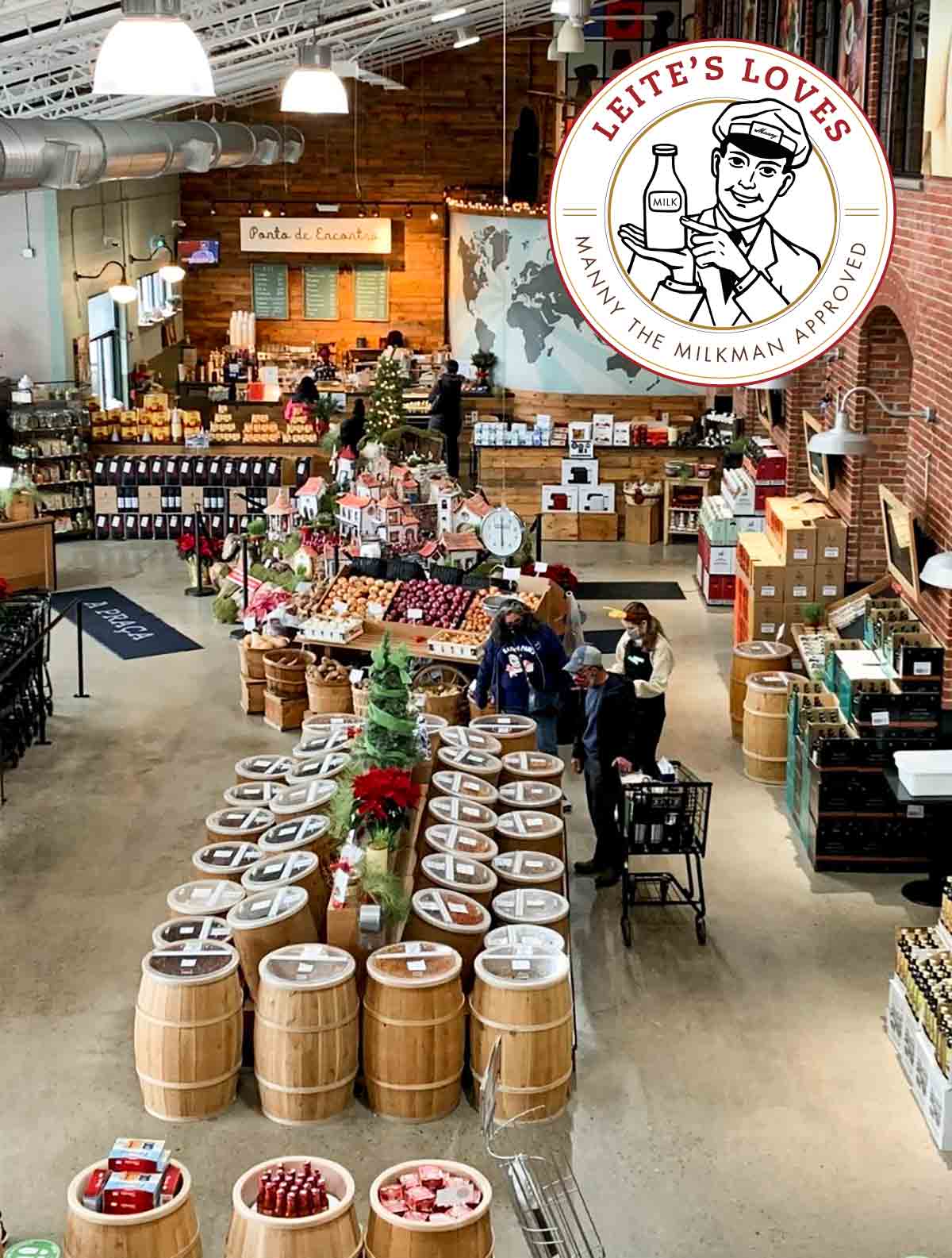
If you’re from the South Coast of Massachusetts, one of the biggest Little Portugals in America, and you think Portuguese food, you think Portugalia Marketplace. The expansive, design-forward food emporium carries everything from Old World staples such as bacalhau (salt cod), tinned fish, dried beans, jarred sauces and pastes to prepared food, fresh baked goods, exquisite bedding and linens, and the best collection of wines outside of Portugal.
The credit for the store goes to Michael Benevides, 44, a second-generation Portuguese businessman. Convinced he could grow the family business from its original location in the family’s garage, which had served only the local Portuguese community for 25 years, he also convinced his father. In no time, Benevides transferred the business to a larger warehouse, and, finally, to its present home in a former textile factory.
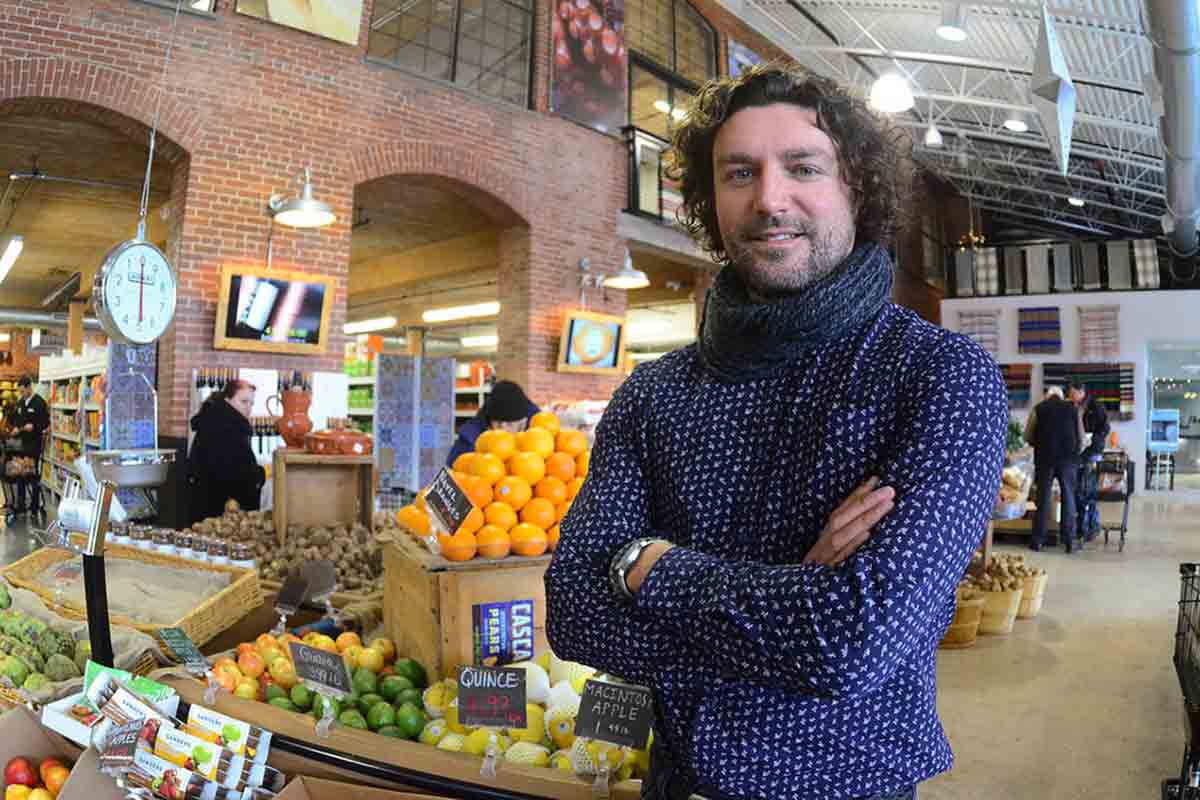
Along the way, Benevides the Younger turned Portugalia into the go-to Portuguese food hall for everyone from the local Portuguese population to culinary travelers looking for the real deal. And if you know the South Coast Portuguese community as I do, with their headstrong refusal to embrace even the slightest change, you’d understand the monumental hurdles Benevides has overcome. The result: The store now rivals world markets such as Sahadi’s, Zabars, or Eataly.
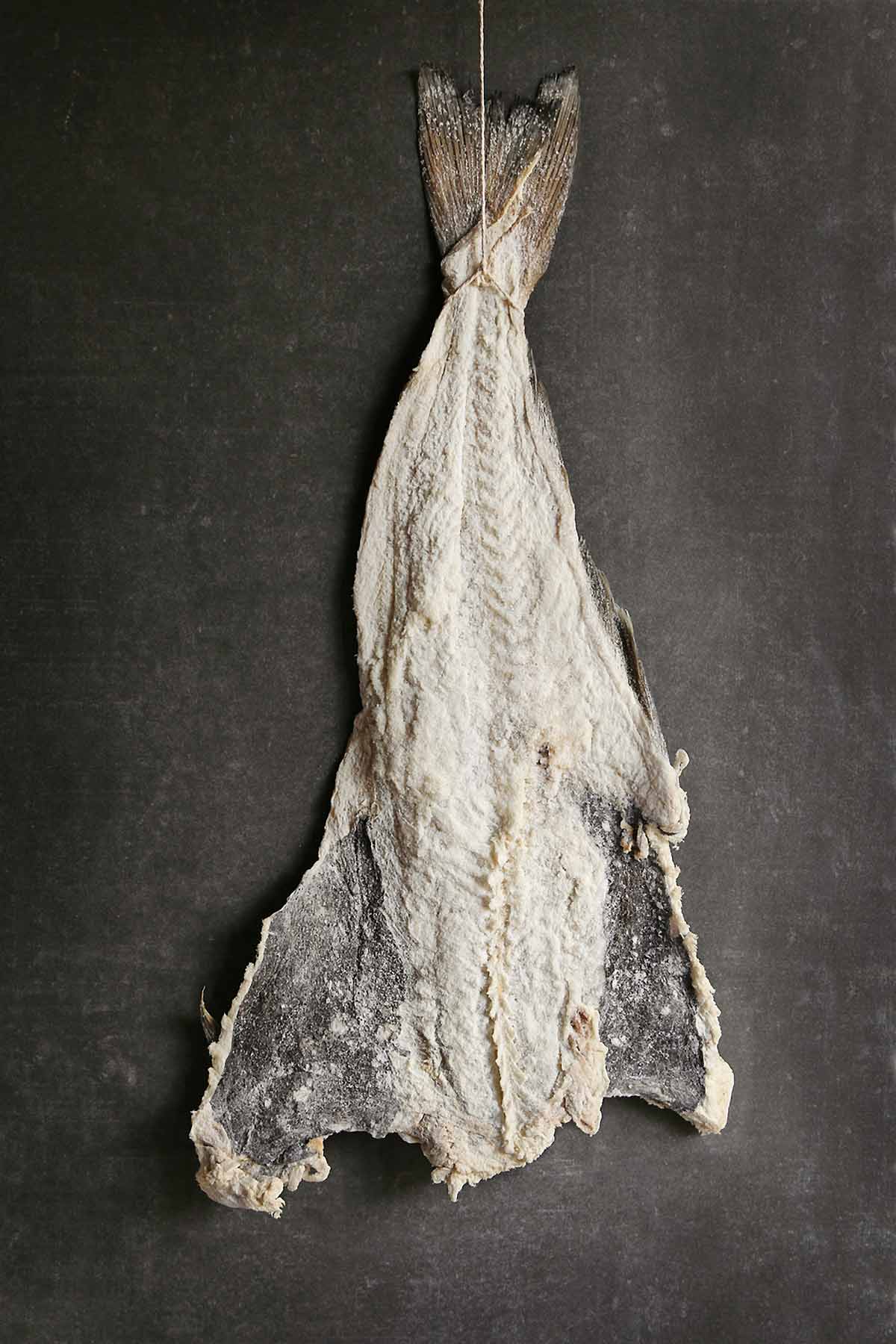
And that’s Benevides’s greatest achievement: revolutionizing the Portuguese pantry while still being true to its history and tastes. Case in point: bacalhau or salt cod. For centuries, Portuguese sailors ruled the seas, and, ever since, salt cod from the North Atlantic has been one of the country’s culinary staples. Immigrants brought the tradition to the United States. For the past several decades, though, you could only find salt cod fillets in plastic bags or small wooden boxes, and the quality was sometimes questionable. Before that, way back in the day, my grandfather would flip through piles of triangular planks of salt cod perched on plywood tables in stores with sawdust strewn of the floors. The fish was as hard as wood and as odiferous as moldering gym socks, a smell that turned me off of salt cod for years.
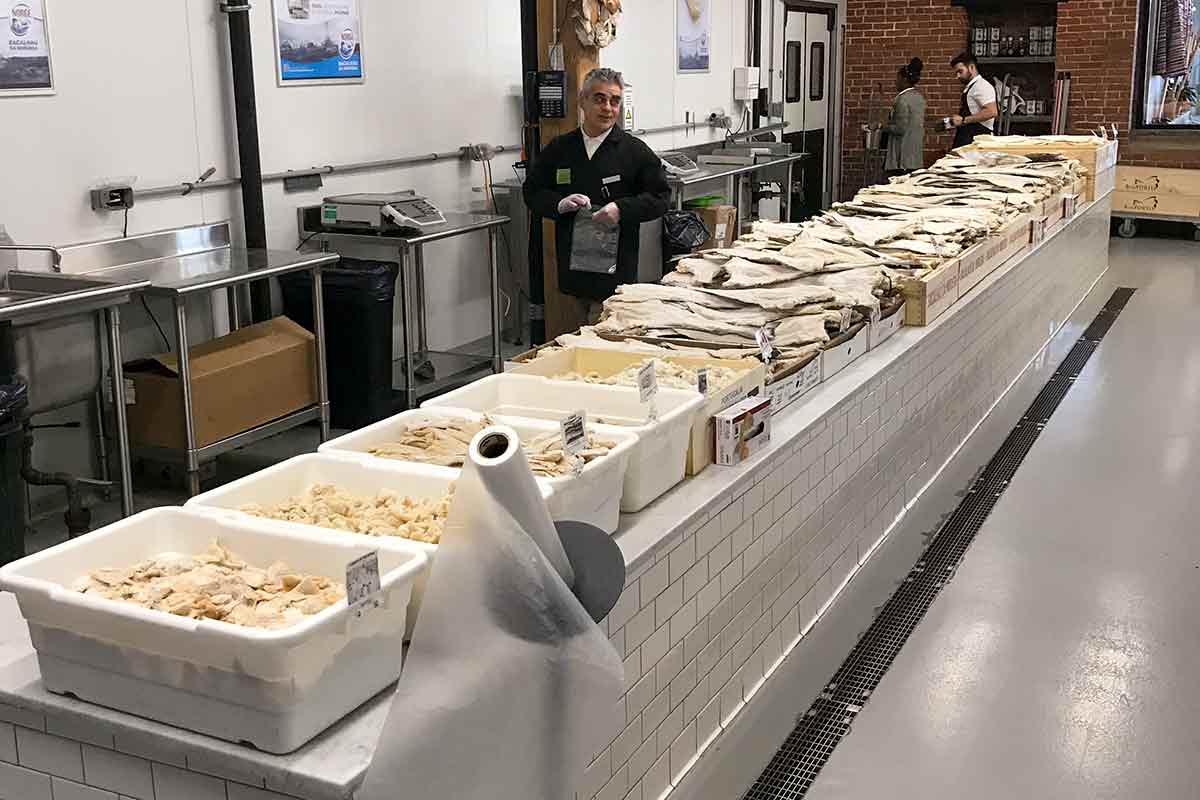
In 2013, when Benevides opened the current location, he included a pristine, temperature-controlled bacalhau room, which has to be the biggest and probably the only room in the world dedicated to the prized fish. Like the markets of old, he too sells whole planks of cod–his from Norway and Canada–bacalhau bits, marvelous salt-cod cheeks, loin, cuts with skin on and skinless. You name it.
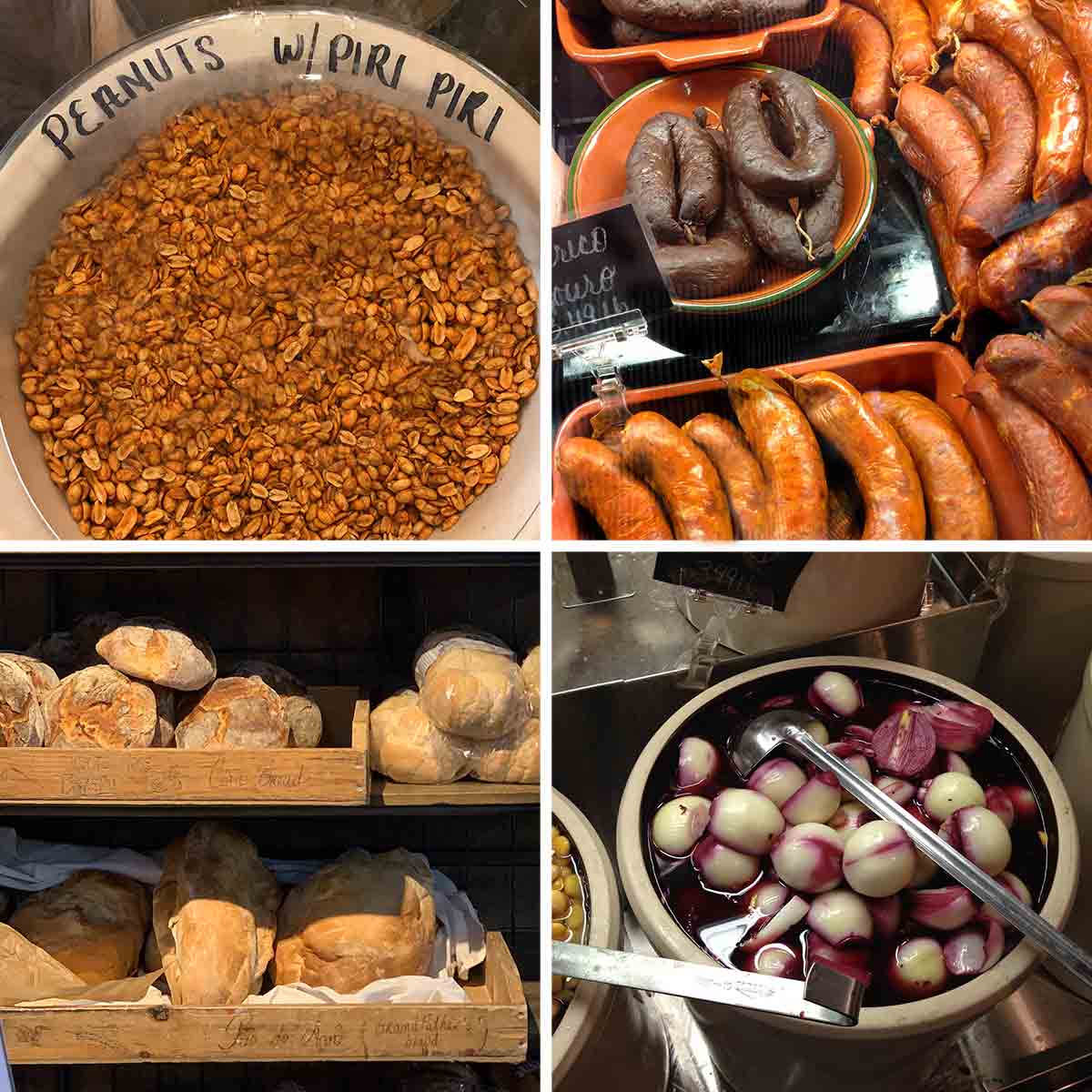
The abundance overflows into the rest of the store with top-quality olive oils and tinned tuna, sardines, octopus, mackerel, and squid. Aisles devoted to conservas (jams) share space with those featuring cooking and baking equipment and the aforementioned massive collection of Portuguese wine. Locally baked Azorean bread, such as massa sovada (an eggy bread similar to challah), bolos levedos (the Azores’ sweet version of English muffins), and pāo de casa (homemade bread) spill from the back wall along with dozens of imported cheeses. In front of it all, piles of heavily smoked chouriço, linguiça, and morcela (blood sausage) tempt, as do cases of prepared foods. Bacalhau á Gômes de Sa (salt cod, potato, and egg casserole), rissóis (shrimp turnovers), and soups are just some of the items on the menu.
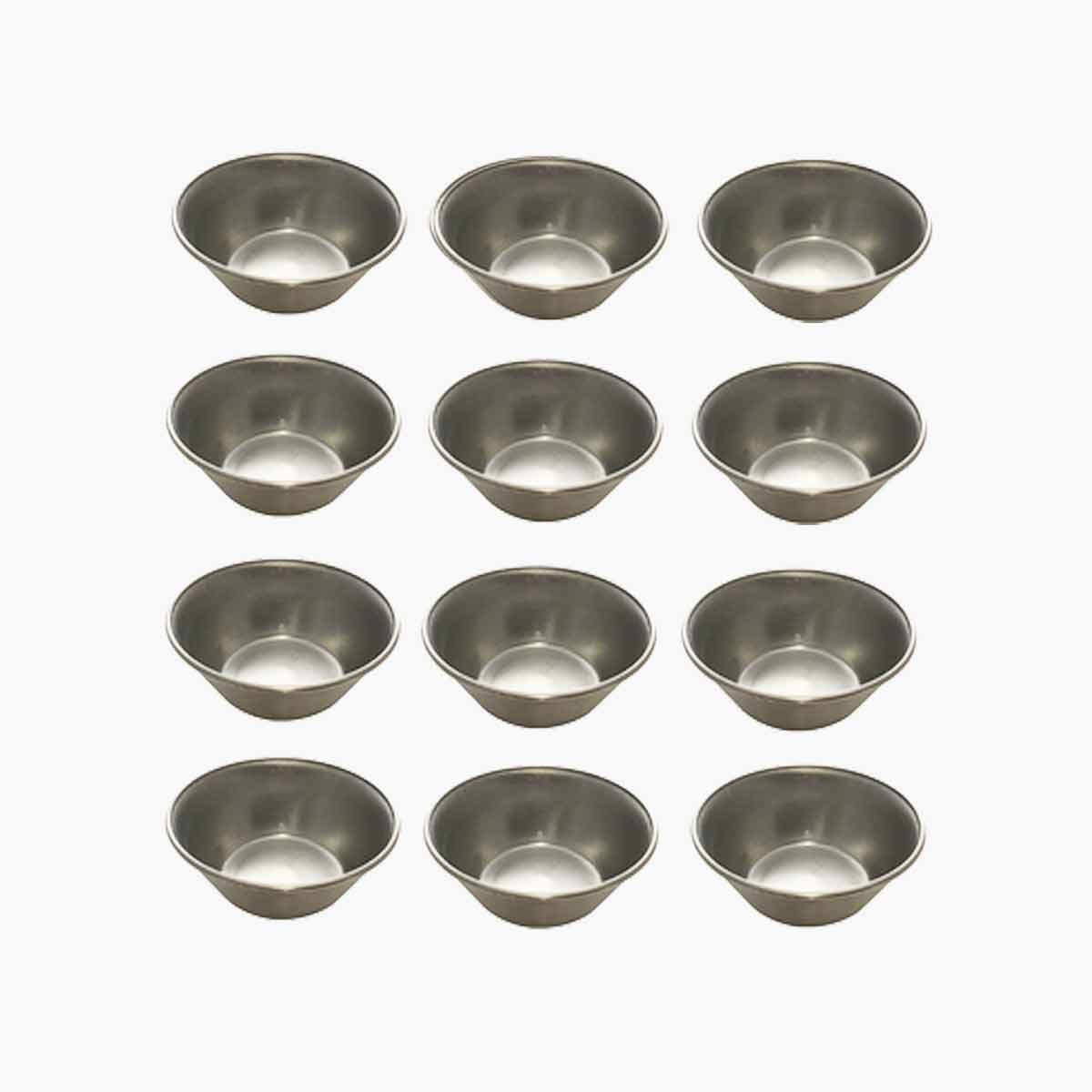
As if that weren’t enough, there’s an in-house bakery that sells everything from savory bites and chouriço spread (yes, I’m on the menu!) to cakes and the famous pastéis de nata, small custard-filled pastries.
So it comes as no surprise, as Benevides said in an interview I had with him recently (see below), they’re already outgrowing their space. Parabéns!

Interview with Michael Benevides of Portugalia Marketplace
When did you get involved in the busiess?
I was brought up in the business from a very young age (since 11 years old). Growing up in an immigrant community like Fall River, we lived a similar experience to most Portuguese in the area. My parents were both factory workers, but my father wanted more and that inspired me in many ways. His tenacity, drive, work ethic, and sacrifices shaped me. My father was a big advocate for higher education and insisted on me going to college. If the business didn’t succeed, I could always fall back on my education.
What were some of your inspirations for the new Portugalia?
In college, I developed a further appreciation for what my parents were doing with the business and became interested in exploring the food industry. I was then fortunate to meet my wife, Sandrine, who grew up in a French family with a father who was a chef. This further cemented my love of food. I also started traveling to France and Portugal, and during these trips, I was inspired by open-air markets, the quality of products, and the attention to detail that Europeans have to food. This got my wheels turning about how to reinvent the family business. We had an amazing and solid ethnic base, but I felt we needed to showcase what we were already doing to a larger audience.
What was your goal in creating a destination store?
As I began to travel to Portugal more, I discovered that the country was also experiencing new movements and dynamics around food, art, and culture and I started to imagine how to capture that energy.
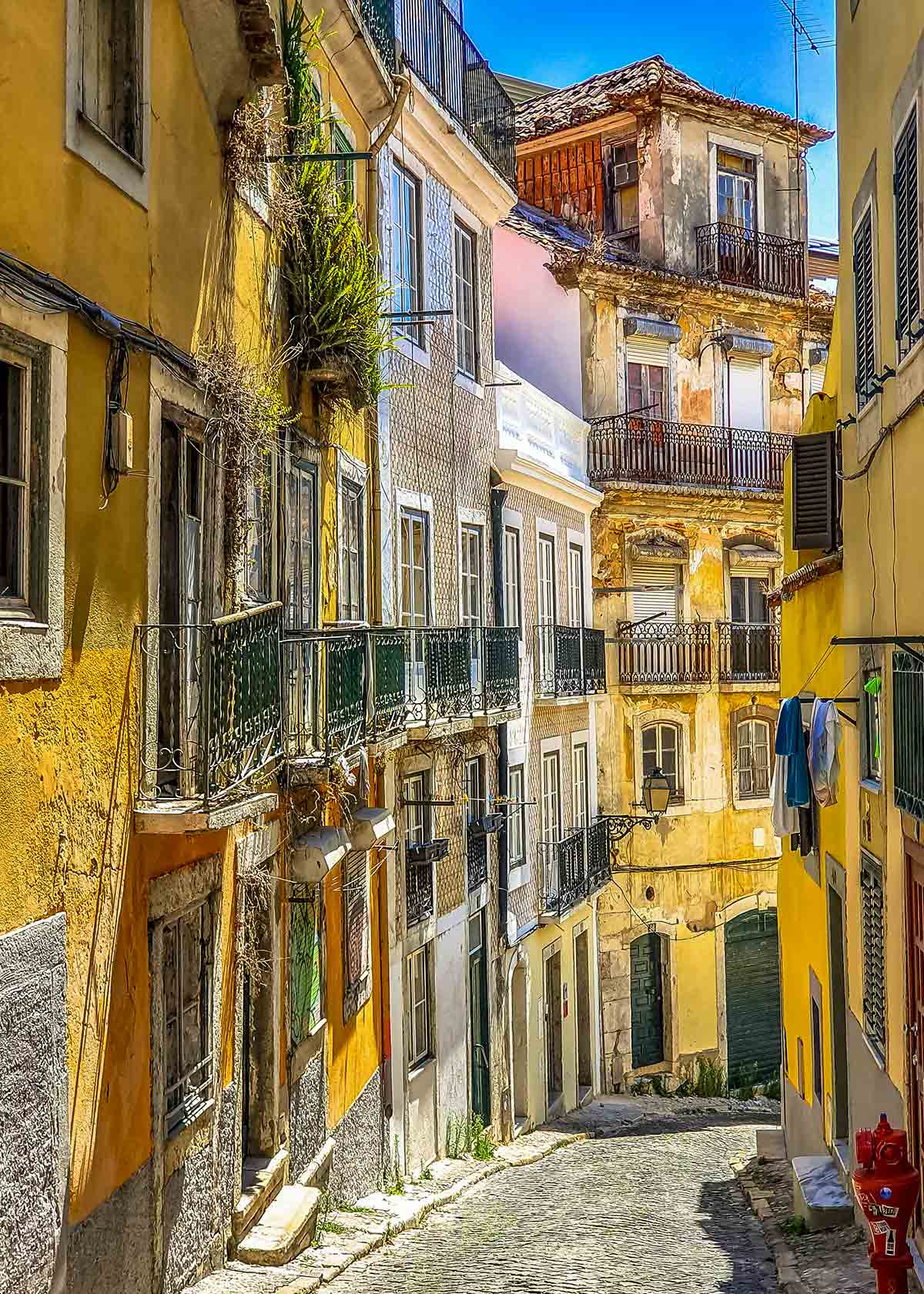
There are multiple reasons I think Portugalia has become a destination: Americans’ growing fascination with food culture along with creating a market in a former textile mill with personality and soul. We showcase so many different products that are new to many customers. Customers often refer to the market as a cultural excursion, and this makes me very happy and fulfilled. The goal was first and foremost to sell the culture that I’ve always been so proud of. Whether it was the contemporary Portuguese culture or the now-transformed “Mercado de Saudade,” this became our goal. A market that is representative of both modern Portugal while still honoring the immigrant communities that reside in New England.
What are the biggest misconceptions you have to help people overcome when they walk in the door?
I would say that one of the misconceptions we have to help non-Portuguese people overcome is that Portugal is not part of Spain! This has changed tremendously over the last 5 to 10 years. Although there are some gastronomic similarities between the nations (for example cured meats), we have our own cuisine.
The other thing that non-Portuguese in New England are not aware of is the fact that there is more to Portuguese cuisine than sweetbread and chouriço, which have become part of New England regional fare and rightfully so.
As for misconceptions of the Portuguese who have lived in the region for some time, we have to help them overcome the fact that Portugal has evolved from the Portugal they once knew into a country that now embraces its tradition but is also inspired by others and that we have products that now compete amongst other culinary stalwarts.
How do you go about curating the Portuguese items you sell? How often do you go to Portugal?
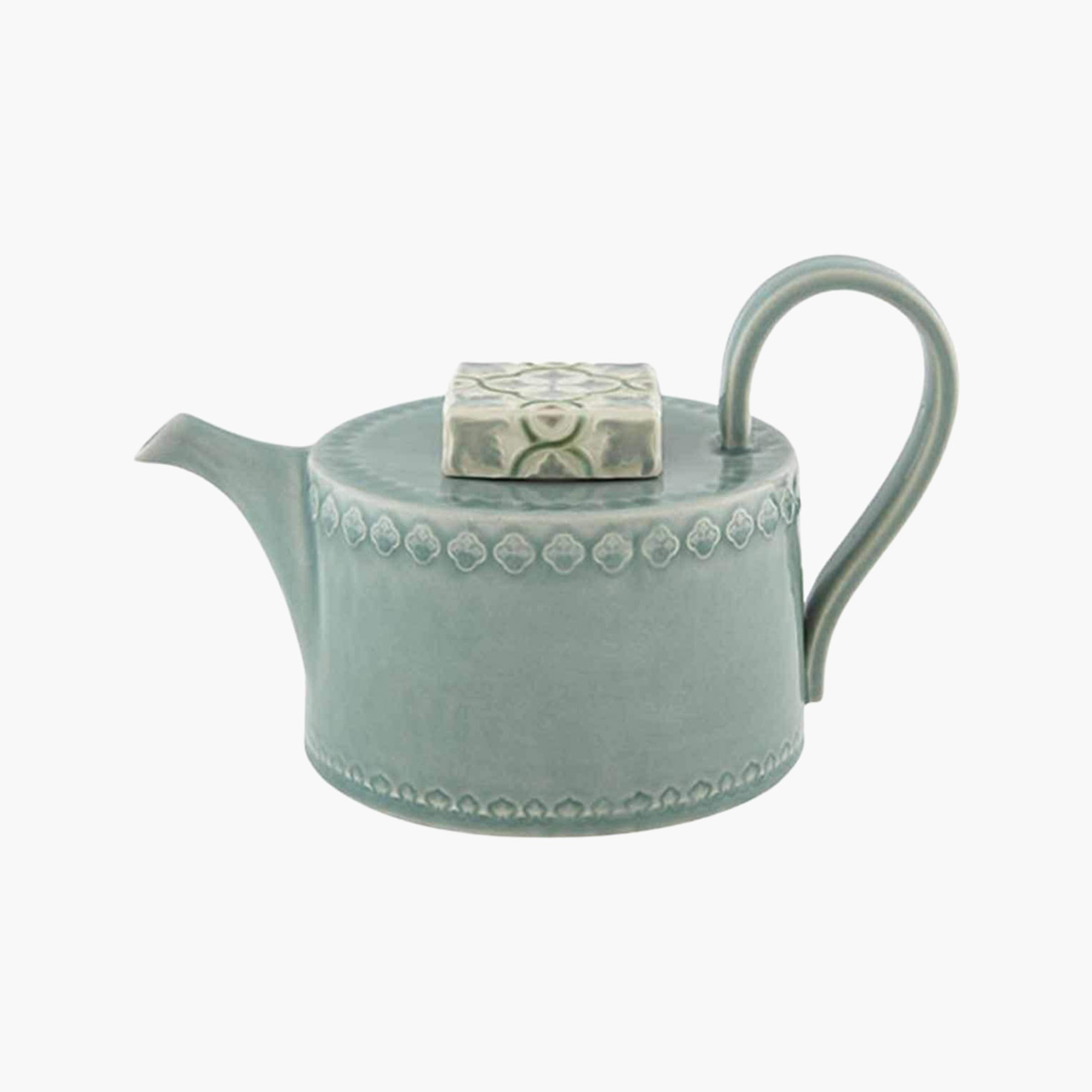
Being in the business for what feels like a lifetime, I’ve developed a sense of what our customers would be interested in. The market dynamics have shifted significantly, allowing me to become more experimental in my purchases. I typically visit Portugal two to three times a year, and in doing so I seek out suppliers and scour the country in search of new and old.
Tell us more about the history of the store and where you hope to be in the future.
We started the business in 1988 in a three-car garage in the back of the tenement home we lived in five blocks from our current location. My father started the business to supply the ethnic community that exists in Fall River. We sold very typical and traditional staples such as bacalhau, olive oil, tinned fish, etc. My father was able to expand our market to attract Portuguese customers from near and far.
At some point, we had customers traveling in from all over New England. This base is what essentially became the impetus for us to expand. We are in the process of building our brand nationally with our e-commerce and also trying to expand our wholesale footprint nationally.
Are you seeing an increasing appreciation of Portuguese food, wine, and cuisine?
All the recent travel to Portugal by non-Portuguese has helped strengthen the perception and image of Portuguese products. Portugal now attracts many diverse groups of people who are adventurous eaters. These folks are becoming walking ambassadors for the brand Portugal.
If someone hasn’t had Portuguese food, what would an ideal starter gift box be?
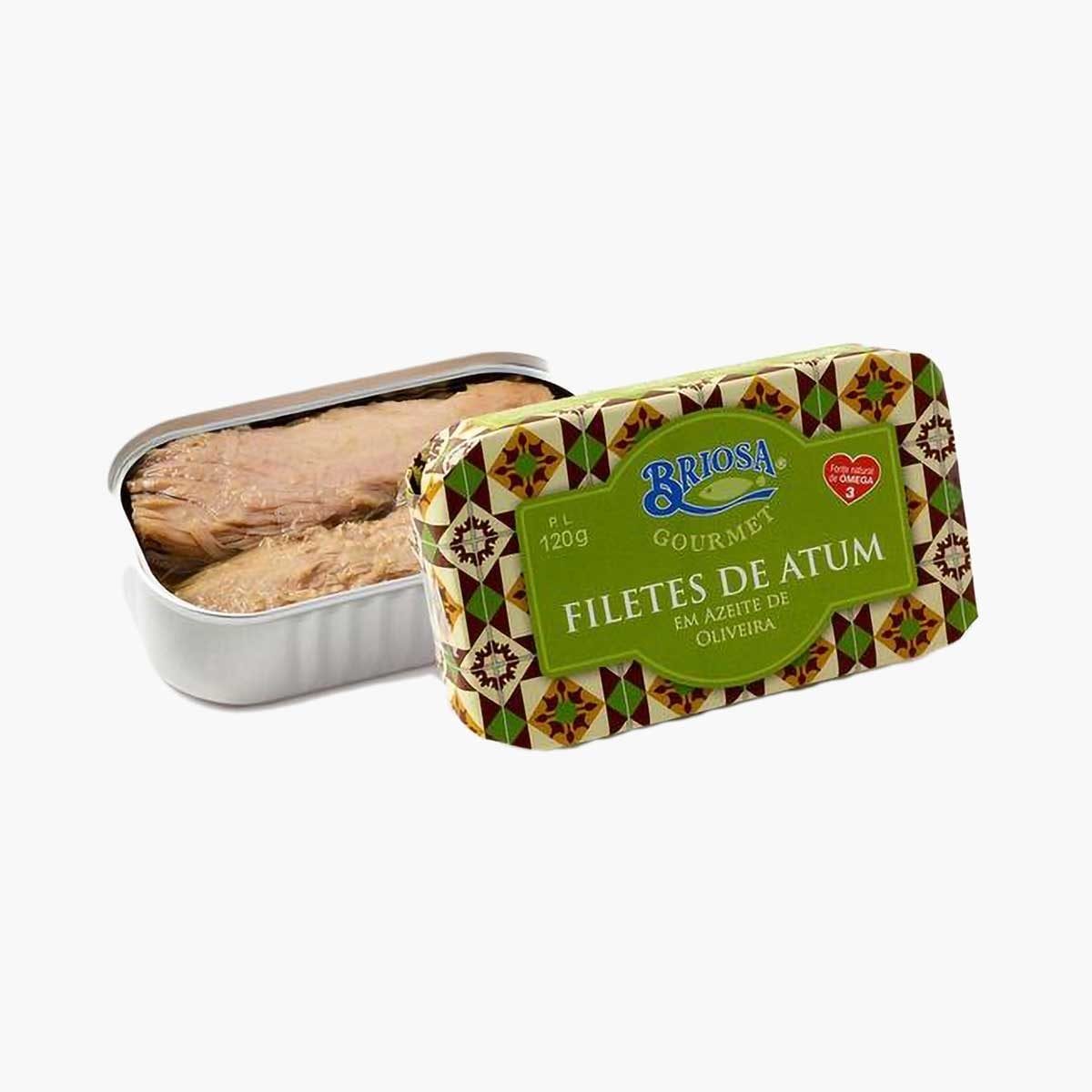
I would suggest conservas, olive oil, cheese, cured meats, wine (although we can’t ship alcohol), and nuts.
Where to find Portugalia Marketplace
Portugalia is located at:
489 Bedford St.
Fall River, MA 02720
Telephone: (508) 617-9820.










I have a deep love for food culture and love traveling to Portugal, Spain, and Morocco. This is definitely a New England road trip to put on my shortlist!!
Thanks for the lovely article, David. I can’t wait to plan a trip there. Even better, I’ll invite my sister to join me from New Hampshire and we can enjoy it together. ❤️
Bonnie, you’re more than welcome! I hope you and your sister enjoy the trip.
I love this place! For people unfamiliar with it I lead what I call food field trips there and they are never disappointed. Those barrels of fried fava beans are a reason alone to go there!
Anne-Marie, I totally agree! The fried favas are great as are the piri-piri peanuts!
I’m writing to ask if you are still offering the gift basket for $150? I somehow deleted, misfiled or simply lost the information on that. It would be a perfect Hannukah gift for my son and his new wife. Please contact me!
Judy, we are! If you go to this page, it will take you to the offer.
Thanks so much! Just placed my order.
Woot, woot, Judy!
We love this marketplace! A wonderful place to buy salted cod, hard-to-find Port, special olives, olive oils, and so many other tasty treats!! Delighted to read your article about it.
Ali, I couldn’t agree with you more!